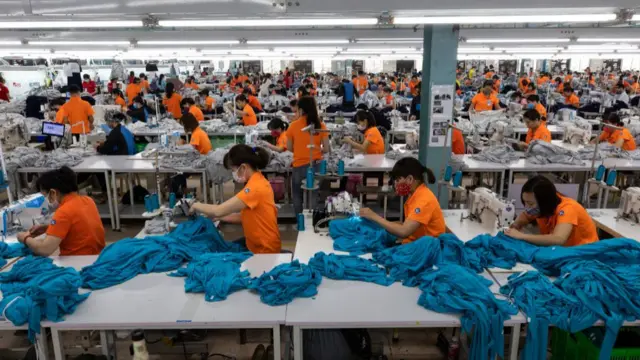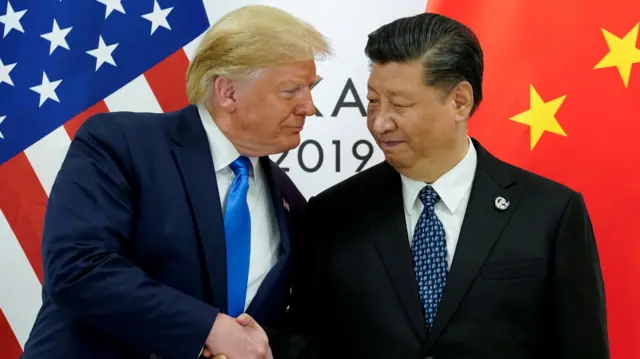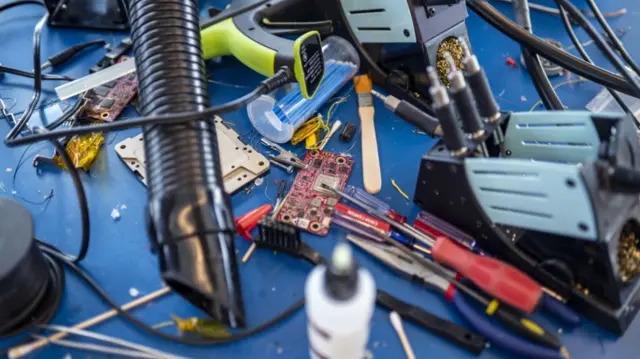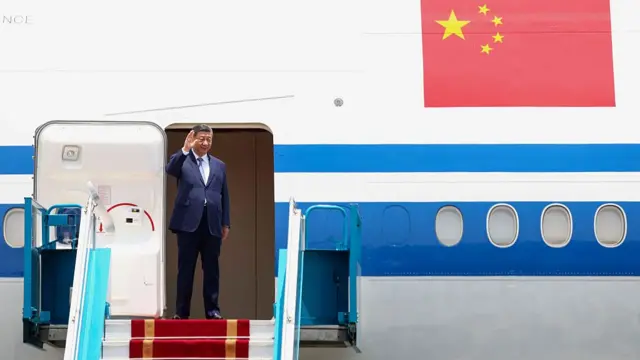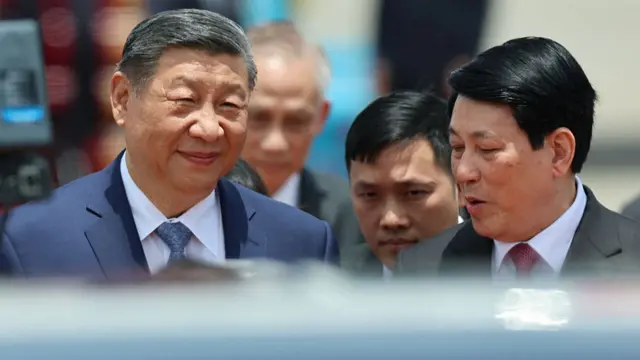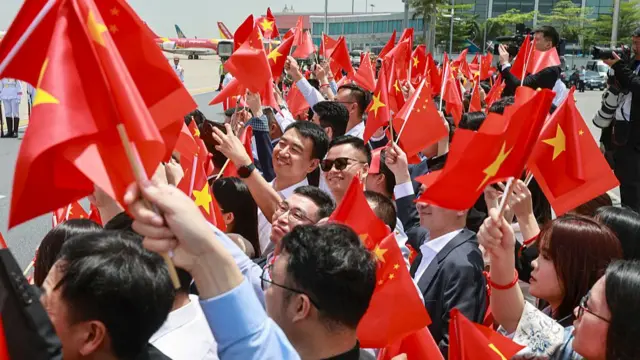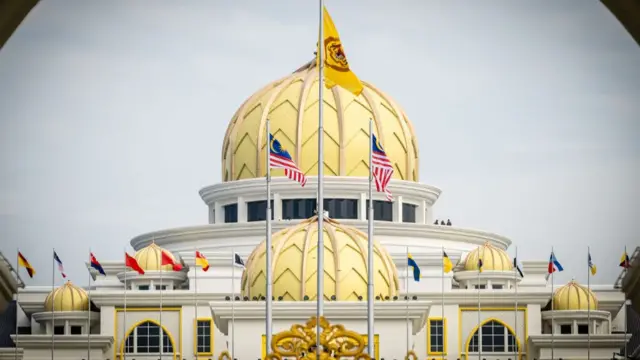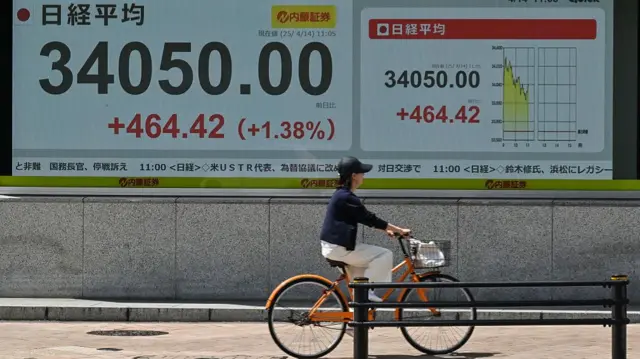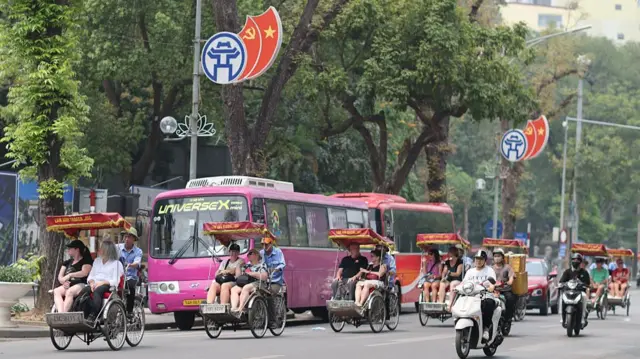Spanish delegation heading for Washingtonpublished at 09:28 British Summer Time 14 April
 Guy Hedgecoe
Guy Hedgecoe
Reporting from Madrid
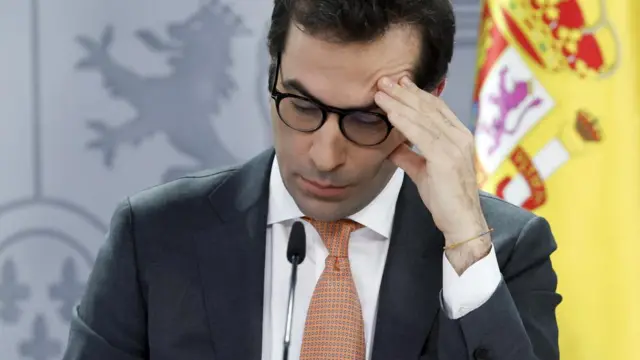 Image source, JUAN CARLOS HIDALGO/EPA-EFE/REX/Shutterstock
Image source, JUAN CARLOS HIDALGO/EPA-EFE/REX/ShutterstockSpanish Economy Minister Carlos Cuerpo has announced that he is travelling to the US to meet Treasury Secretary Scott Bessent on Tuesday.
Cuerpo says the aim of the meeting is to strengthen bilateral ties.
Bessent recently warned Spain that its efforts to forge closer trade relations with China were like "cutting your own throat”.
